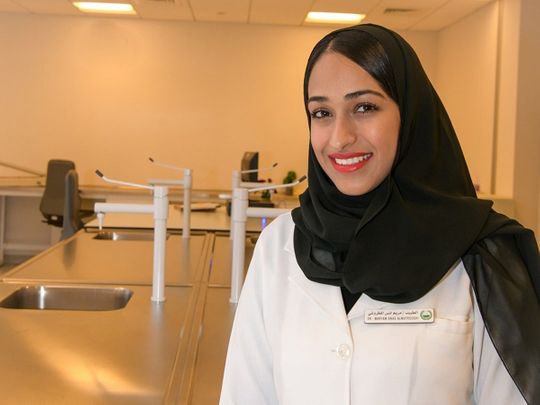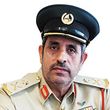
Dubai: A Dubai Police employee has become the first woman specialising in the field of criminal radiology in the Middle East.
Dr Mariam Al Matroushi, a radiologist at Dubai Police Department, has a qualification from the European board of diagnostic radiology from Austria. She is currently working on a project to establish the first criminal radiology lab in the Middle East at Dubai Police.
Major General Ahmed Al Mansouri, director-general of criminal evidence and criminology at Dubai Police, said her project is one of the important initiatives directed by Abdullah Khalifa Al Marri, Commander-in-Chief of Dubai Police.
Continuous development
Maj Gen Mansouri added that the establishment of the first criminal radiology lab reflects the extent to which Dubai Police is keen on continuous and proactive development in policing. He said the general administration of forensic evidence at Dubai Police has become an essential reference for criminal investigation in the region, capable of solving complex criminal cases and providing studies supporting criminal investigations globally.
Dr Al Matroushi said: “I am proud of my work in this speciality and in the General Command of Dubai Police, which is one of the most important forces in anti-criminal efforts globally. They facilitate the success of women, who are able to pursue various disciplines within the framework of the leadership of Dubai Police.”
Vast experience
She received a bachelor’s degree in general medicine and surgery from Dubai Medical College, and is currently working to complete the requirements of the Arab board. She has completed 14 years at Dubai Police in the medical and forensic fields. Dr Al Matroushi served as deputy head of radiology at the Dubai Police Health Station. She works in both the Department of Forensic Medicine and the Dubai Police Health Centre.
Dr Matroushi discovered malignant tumours and saved the lives of seven people in two years. She also contributes to social work and has volunteered for 58 community projects. Dr Matroushi said the department will reduce the time spent in anatomical study from two days to just around half an hour and enable doctors to diagnose remote cases.







